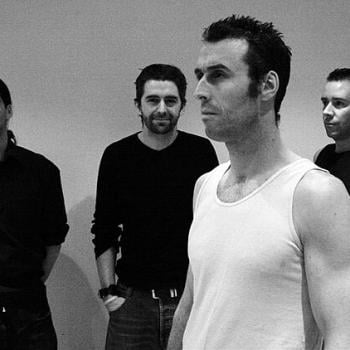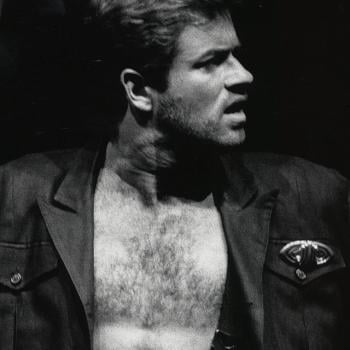
Lecrae gained popularity through his framing of Hip Hop originating in a Christian doctrine, then moved away from his faith. His self-deconstruction comes from his denial of the American church. However, his fame as a Christian Hip Hop artist remains his signature. Critical and audience praise for his work is well noted. Taking Lecrae at his self-definition of a new journey of faith, how can he continue to hinge his popularity on Christian Hip Hop? Can one be a Christian Hip Hop artist if they are undergoing a deconstruction of faith? Careful attention to Lecrae’s creative productions positions his work less in the canon of Hip Hop and more aligned with a pop genre or, at the most fringe, Hip pop. But to claim the signifier of Hip Hop proper is a misuse of the art and culture of Hip Hop. When Hip Hop is bonded to Christianity, a specific discourse is created. The dynamics of Hip Hop are elevated to support one’s Christian faith, not to be trivialized as a moniker for record sales or an easy marketing term. I argue that Lacre is not a Christian Hip Hop artist, and the critical acclaim he has gained is an inaccurate use of Hip Hop based on many faith-based writer’s lack of Hip Hop knowledge.
What Is Christian Hip Hop?
I have written extensively elsewhere about Christian Hip Hop. Based on the scholarship of Hip Hop that has been established throughout the past 50 years since Hip Hop broke on the mainstage in the Bronx, New York, Hip Hop has codified a secure culture and artistic expression. The core elements of Hip Hop – DJ/MC/Rap, Turntablism, Breakdance, Graffiti, and Fashion – have not lessened over the decades. New scholars include offshoots such as socio-political activism, education, and business/entrepreneurship in the new trajectories of Hip Hop. For my purposes of structuring the foundations of Christian Hip Hop, the core elements are the foundation of the argument. Without these original organic elements of Hip Hop, the resulting multi-billion dollar a year industrial complex would not exist. Far too often, the bending of these elements by emerging Hip Hop artists is the compound result of why the discipline has weakened to the state of pop cultural preference, “Hip pop.” Minimizing the value of the original core elements of HIp Hop, and in some cases not being aware of their origins or intersectionality with each other, has further eroded public understanding and misuse of Hip Hop. “Hip pop” is more the standard of what pop culture recognizes as Hip Hop: a diminutive approach to the core elements of Hip Hop through the use of distortion and manipulation consistent with pop cultural demands and market profit
Hip Hop is a dynamic art form. For Hip Hop to embrace Christianity, the genre does not substitute core values but rather grafts Christian faith within the elements of Hip Hop. The appropriation of the Christian faith in the Hip Hop opens the door for an expanded faith-based vernacular in the Hip Hop genre. The strength of Hip Hop is the liberty of the genre to embrace Christian discourse alongside secular works without any contest or objection.
In addition to the core elements of Hip Hop, Christian Hip Hop needs to frame its core values and faith-based definitions. These are recognized as Discipleship/Evangelism, Personal Testimony, and a Scripture-centered language. These foundational elements of Christian Hip Hop position a work as being in the growing canon of Christian Hip Hop.
Subtle Physical Gestures
As Hip Hop progressed, each element became a specialized subgenre. MC/DJ/Rap maintains the most visible element of Hip Hop culture. Incorporating multiple vernacular, MC/DJ/Rap retains its organic presence coming through oppressive narratives and poetry. Turntablism has become highly prolific. Original samples, loops, cut/mix, and scratch techniques are more defined and articulate. Graffiti has had a complicated history. Starting as an artistic reference of defiance for youth, to being recognized as a criminal act, graffiti’s growing pains eventually found a secure presence in high art galleries and museums. Being the branding of Hip Hop culture, graffiti continues to walk a fine line between property destruction to a prominent artistic genre. Breakdancing grew from the schoolyard B-Boy/B-Girl battles to influence classical Western dance styles. Signifiers of breakdance find their way as subtle physical gestures in how pop culture showcases a sense of insider vernacular. The most recent award breakdancing acquired is the inclusion in the 2024 Paris Olympics. The fashion industry was slow to welcome Hip Hop style. The binding between high fashion and Hip Hop style has grown to be a stand-alone billion-dollar industry. Forbes notes that in 2024, Hip Hop fashion secured 10 billion dollars globally. The classic hoodies, sagging pants, stylized sweatsuits, and tracksuits are now a pop cultural standard globally.
Critically Important Genre
For Christian artists to position themselves in the discourse of Christian Hip Hop, a majority of the core elements of Hip Hop (MC/DJ/Rap, Turntablism, Graffiti, Breakdance, Fashion) and the core values of Christianity (Discipleship/Evangelism, Personal Testimony, Scripture-centered language) need to be articulated and represented together. These mechanics are the foundations of Christian Hip Hop. This high bar is met by many faith-based Hip Hop artists, where others fall short and defer to being a faith-based Hip pop artist. Poo culture misunderstands these differences. Journals, magazines, and websites promoting Christian Hip Hop who are not versed in both the fundamentals of Hip Hop culture/history and the mechanics of Christian Hip Hop misassign Hip pop artists as “faith-based” or “Christian Hip Hop” artists. The compounded misguided use of the term and inaccurate understanding of the core values of Christian Hip Hop illustrate a distorted image of this critically important genre to secular and faith-based communities. The fault is often not that of the artist or publication. It is more consistent with the need to qualify a work in a market compartment using an expedient yet unfulfilled signifier for consumer attention. The business overrides the value of Christian Hip Hop, the exact detriment and greed-focused attitude Bizzle’s “God Over Money” ministry warns against.
A textbook example is Hog Mob Cypher 2017.As the notes to the video state, “HOG MOB is a global discipleship network that focuses on bringing the Gospel of Jesus Christ to the urban culture. the group of Artists featured in this video are: Illuminate, Qheem the Redeemer, Dontae, Sevin, Faith Pettis, Maclashen.”
Another example of Christian Hip Hop is GOM Cypher 2016. The track was released on Bizzle’s God Over Money label, the album Crowns and Crosses, and features Sevin, Datin, Bumps INF & Selah The Corner.

Hip Hop In The Hands Of Lacre
Lecrae positioned the evolution of his career in April – May 2012 with the release of Church Clothes. This work, in his evaluation, was the seminal release and the beginning of Christian Hip Hop. The original work saw 100,000 free downloads on Rapzilla in the first 48 hours of the release and spawned two other major works over the next 10 years, Church Clothes 2 and Church Clothes 3. Now entering the fourth volume, Church Clothes 4, Lacrae notes on his website,
On Church Clothes 4, the mission remains the same for rapper, CEO, New York Times Best-Selling author, investor, and activist: To represent faith and Hip-Hop with an Unashamed edge that challenges the Church to live up to its potential and encourages the Culture to reconcile with its Savior. In this entry, Lecrae gives his listeners an opportunity to see what it looks like to reconstruct a vision of faith despite the large-scale shift toward mistrust and disillusionment with Christianity in the wake of America’s racial tensions.
The concerns come with the last portion where Lecrae states his work seeks to “reconstruct a vision of faith despite the large-scale shift toward mistrust and disillusionment with Christianity in the wake of America’s racial tensions.” Lecrae’s releases received abundant praise and controversy alike. Secular publications saw his work as revealing and timely. Christian publications viewed the same with hesitation about the integration of Hip Hop with Christianity. This point, from faith-based/Christian publications on the criticism of Lecrae, is framed around less than the integration of Hip Hop with Christianity as it is with Lecrae’s deconstruction of faith leanings – and eventual area where he situates his faith – and socio-political views. Further, Lecrae stated in a blog for Reach Records (2012) that many “have no clue how to engage culture in politics, science, economics, TV, music or art. We tend to leave people to their own devices there.” This points to Lecrae’s perspectives are beginning to rise to the surface. The juxtaposition of Christianity and Hip Hop is the inner controversy of religious leaders who see the benefit of Lecrae’s music and visibility while arguing against his faith deconstructionist attitude. The magazine Church Leaders in 2024 supplies the question while being soft on the critique of Lecrae’s music.
Strip Away the Nationalist Mindsets
“Is Lecrae a Christian? He has consistently affirmed his commitment to Christianity….[b]y addressing real-life issues from a faith-based perspective, Lecrae has opened up conversations about spirituality, identity, and purpose, making him a significant figure in contemporary Christian music.”
What Lecrae saw on the release of Church Clothes was the attraction of his work both in the secular and religious communities. Capitalizing on this point in time, Lecrae was elevated to being an authority for the voice of Christian Hip Hop. However, Lecrae himself states he sees himself as a “Hip Hop kid who found the Lord.”In an earlier interview with Church Leaders (2021), Lecrae states, “[B]ut I found America’s version of Christianity, which was detrimental to my psyche, and it was drenched in white supremacy. So I had to deconstruct my faith, come to grips with who God is, and strip away the nationalist mindsets that were drenched in it.” The point Lecrae echoes through the interview, and following conversations about pop culture, politics, activism, and social issues, is the importance of supporting the Black community. For some, the repeated statement of this position forces a division in Christianity. If there is only one God for all people, the understanding is for all people regardless of culture, race, or ethnicity.
Using the platform of Hip Hop to formalize a binary opinion reduces the value of Hip Hop culture as agency to share gospel truth. This may have been Lecrae’s initial intent with the release of Church Clothes. It is the navigation away from the value and importance of Hip Hop to speak across cultural, racial, and ethnic borders and function as a vehicle to share the gospel that has been marginalized in Lecrae’s works since. The complication with Lecrae’s argument to support deconstruction and use Hip Hop as a vehicle to express and fortify this perspective is that Lecrae limits the power and limitless understanding of God. Nonverbally stated and subtextual in Lecrae’s deconstruction perspective is that God has been reduced to a human consciousness level. God is beyond our human understanding. This point is well defined in scripture,
Psalm 147:5. “Great is our Lord and abundant in strength; His understanding is infinite.”
Isaiah 55:9. “For as the heavens are higher than the earth, so are my ways higher than your ways and my thoughts than your thoughts.”
1 Corinthians 2:9. “But, as it is written, ‘What no eye has seen, nor ear heard, nor the heart of man imagined, what God has prepared for those who love him’—”
Colossians 1:17. “And he is before all things, and in him all things hold together.”
Job 36:22-24. “God’s power is unlimited. He needs no teachers to guide or correct him. Others have praised God for what he has done, so join with them.”
Ephesians 3:19. “May you experience the love of Christ, though it is too great to understand fully. Then you will be made complete with all the fullness of life and power that comes from God.”
Ephesians 1:18-19. “I ask that the eyes of your heart may be enlightened, so that you may know the hope of His calling, the riches of His glorious inheritance in the saints, and the surpassing greatness of His power to us who believe. He displayed this power in the working of His mighty strength.”
To limit God is to place one’s perspectives and ideologies above God. Lecrae is apt to point out the inconsistencies and distortions present in how the bible and scripture are distorted by some for personal economic gain, political positioning, and mass pop attention. These TikTok Preachers, Instagram Theologians, and YouTube Prophets do more harm on a mass for bible/scripture truth than sound doctrine teaching churches and pastors. Yet, to couch one’s argument on this collective motley crew and turn toward a deconstructive ideology contextualizing a personal, limited, conscious-based, post-modern reading of scripture is a destructive approach to leaning on God and building a firm faith-based foundation on sound scripture doctrine. There’s no doubt Lecrae is well-versed in biblical scripture. The verses provided at specific points as evidence of his knowledge are used in the context as he sees fit. This, in and of itself, can also be used to argue in support of one’s determined directive to relocate away from biblical truth and exercise faith in God’s authority. Further, to use Hip Hop as the expressive agent to elicit and share these ideological frames the evolution and visiblilty of Christian Hip Hop in a potentially negative light.
It is of value to note how and when Lecrae uses the term “Christian,” not as a context of his spiritual walk, but as an external signifier for how others relate to and use organized religion. “Christan,” for Lecrae is a representative moniker of what he finds unacceptable in faith and, as stated, the reason why he embraced a deconstructive agenda in the first place – to replace a distorted perspective (read: what Lacrae notes as the ‘American church’) for a personal ideological understanding and reducing God’s authority to a human, attainable level. Forstering this agenda in Hip Hop, and allowing critics and audiences to situate your work (Lecrae) as “authentic Christian Hip Hop” can, for some, minimize the important value of Hip Hop to share gospel truth and evangelize, support those seeking faith, collect disciples, and articulate personal testimony. All of which are the foundations of Christian Hip Hop.

Deconstructing Faith, Building A Following
Lecrae’s testimony is about his deconstruction, a conscious decision to move away from the “American church.” Throughout this personal approach, his audience appeal remained secure, and he continued to employ the marker of a faith-based Hip Hop artist. The question begs, “What does Lecrae mean by his deconstruction?” The apologists Alisa Childers and Tim Barnett provide a clear definition of deconstruction,
“Deconstruction is a post-modern process of rethinking your faith without requiring scripture as a standard.”
This aligns one’s deconstruction along the binary points of actions and authority. The action is the conscious process of rethinking faith. The authority is articulated through post-modern reference absent of scripture. For Lecrae, this is where he finds himself and positions his Hip Hop work. Following this definition and juxtaposing it with the noted framework of Christian Hip Hop, Lecrae is not a Christian Hip Hop artist. At best, Lecrae would be considered a considered a faith-based Hip pop artist. However, even this marker is not satisfactory.
Struggle With Pop Culture
Lecrae posted a lengthy video discussing his deconstruction, “I Deconstructed – This Is What Happened.” In this personal testimonial through an interview, Lecrae toggles between codifying his definition of deconstruction. Lecrae speaks about his struggle with pop culture and his relationship with Christianity. Yet, he avoids the term “Christianity” where others note him as a Christian rapper, gospel rapper, or faith-based Hip Hop artist. What is central to Lecrae’s perspective is a contextualizing of faith in pop culture, which places pop cultural signifiers as the gravitational pull.
Aside from critiquing how faith can influence, challenge, and reframe socio-political ideologies around sound scripture doctrine, the use of testimony, and building discipleship, Lecrae inverts this reading. In the track “Deconstruction,” Lacrae spells out this point and how it decentered his faith, leading to his active embrace of deconstruction and, as he notes toward the end, a “reconstruction.” The assumption is that the reconstruction is of faith, but this is not qualified as the track dribbles on with wandering piano lines, synth textures, echo-laced female vocals, and a dwindling backbeat. To argue for the application of deconstruction and potential for a personal reconstruction, a work embracing the title of this ideologically loaded term, one would anticipate the work to be provocative in sound and narration. The opposite is recorded and viewed by 1.41 million viewers.
Critique of Pop Culture
Around the 12-minute mark in the video “I Deonstructed,” Lecrae proposes his view of “healthy deconstruction.” The views Lecrae makes are framed around pop culture’s misappropriation, misunderstanding, and misguided use of trivial borders around the protection of faith (read: Christianity, Lacrae states at the 15-minute mark) by an Anglo/White socio-political hegemony. Lecrae’s definition of “healthy deconstruction,” further stating that “there’s nothing bad with deconstruction,” is founded on a personal articulation of how to strip away external distractions from the core content of the bible. Yet, what remains central is an individual point on how faith is developed, viewed, and associated along cultural lines, using faith as a resource to found his argument. This is attractive to those outside of faith-based/Christian Hip Hop as seeing how these definitions – articulated by Lecrae – work and open a conversation for a further audience base. For those who are in the faith-based/Christian Hip Hop environment, there will be discrepancies in this argument. Following the elements noted for Christian Hip Hop, sound scripture doctrine is one of the pillars. Christian Hip Hop is a vehicle for the critique of pop culture rather than pop culture situating the tone of Christian Hip Hop.
If Lecrae is firm with his deconstruction of faith, following the provided definition of deconstruction, Lecrae cannot qualify his work as having a faith-based context. Lecrae’s sense of faith (read: a self-defined, post-modern ideology and human limitation of God) lacks any relevant, active, or secure foundation in faith outside of himself. Lecrae’s faith is in himself, not in a relationship with God or marginally connected to a spiritual discipline. Lecrae cannot be qualified even as a faith-based Hip Hop artist. Lecrae’s best option in positioning his work is in a secular Hip pop arena. However, in situating his work in this vast world, Lecrae is subject to presenting his work along with the other thousands of secular Hip pop artists, each striving for audience attention and record sales. How could Lecrae survive in this vast, unbridled, market-driven, economically dependent Hip pop industrial complex? He would be one in a cast of many.

Lecrae As Hip Pop
To find a niche on which Lecrae can center his work is a necessary economic and business strategy. The constant use and articulation of faith, even through a deconstruction process, becomes his selling point. Lecrae functions as an agent of faith deconstruction, utilizing the surface elements of Hip Hop manufactured through a reduced standard for popular consumption – Hip pop. Lecrae is a crafty businessman, walking the line between faith-based and secular audiences. This highlights why he has been able to retain popularity and, by proxy, a discipline authority. What has not been discussed is this manner of operation and artistic output by Lecrae; how he defines his work. Rather, faith-based/Christian reviewers, by and large, are uneducated in Hip Hop discourse and default to Lecrae’s own words as the authority. Likewise, reviewers familiar with Hip Hop are often uneducated in biblical scripture, Christianity, or accurate definitions of faith. This camp of reviewers follows Lecrae’s stump speech about faith, which is more accurately a personal application of deconstruction, and situates Lecrae as a discipline authority as well. For Lecrae’s business profile, this is a win in either direction without interference from other artists, albeit true Hip Hop or Christian Hip Hop. The wide-ranging audience appeal of this approach makes Lecrae’s work approachable and easy to commodify on multiple levels. Lecrae has been able to define his standard through faith deconstruction and the misguided use of Hip Hop as a stereotype for his Hip pop work. Taking this reading, Lecrae is brilliant in his (non)faith/secular marketing plan, providing him with the wealth and notoriety he has grown comfortable with embracing.
Examples that hold this binary relationship – use of faith-based/Christian signifiers and Hip Hop elements – in Lecrae’s works are noted in,
Church Clothes , Still In America , Tell The World, Featuring Mali Music and Good Lord, Lecrae and Andy Mineo
Dynamic Pluralistic Audience
Each example walks through a different representation of pop culture, socio-economic stereotypes, and cultural oppression and situates scripture in selected points. The examples illustrate a strategic marketing and branding of Lecrae and his use of Hip Hop as a signifying agent. For a secular Hip Hop audience to gain any sense of Lecrae as being a faith-based/Christian Hip Hop artist only requires the bare minimum influence of scripture embedded in the examples. A faith-based/Christian Hip Hop conscious fan would search for how scripture is used and presented. Seeing the missed opportunity to explore biblical knowledge while serving to critique pop culture, a faith-based/Christian Hip Hop conscious fan would need to seek out further supporting evidence about Lecrae and his spiritual journey to qualify his work as being Christian Hip Hop. Again, a win on both fronts for Lecrae; multiple audiences are searching for his work, which expands his media footprint and crosses religious borders to build a dynamic pluralistic audience base.

Why Christian Hip Hop Matters
Christian Hip Hop can be used as a prominent vehicle for sound biblically expressed knowledge, building disciples, providing a platform for evangelizing, and articulating a personal testimony of faith. Couched in the core elements of Hip Hop culture, Christian Hip Hop can dynamically border cross to secular and faith-based communities. The global visibility and mass market appeal of Hip Hop sees no limits. However, the gross distortion of conscious Hip Hop by way of embracing pop culture for economic growth shapes the more common Hip pop. Hip Hop artists who elect to share their spiritual journey through creative output hold a very high calling. Overburdening the audience with scripture limits the attention some would provide. Not enough or vacant of sound scripture doctrine devalues the importance of sharing the gospel through Hip Hop. These delicate waters appear complicated to navigate. However, the large body of Christian/faith-based Hip Hop artists working in this arena are the testimony of the importance and desire for multigenerational audiences to obtain and share scripture and testimony while supporting community and building strength in their spiritual walk. Christian Hip Hop matters as a location of active ministry and spiritual culture. The beats resonate in the heart as the lyrics employed by Christian Hip Hop artists pour into that dialogue. Sound doctrine can live in another expressive state for popular attention. Hip Hop’s gravitational pull draws audiences to engage in evangelism on a different level. The collective body serves to illustrate how a spiritual community can come together in support and discipleship. Christian Hip Hop may not hold a key to resolve embedded distortions, negative profiling, and misuse of biblical knowledge or scripture for pop culture. But Christian Hip Hop does hold a firm, phat beat as a call to arms for those seeking to discover a spiritual journey founded on biblical truth and knowledge.
Jesus saith unto him, I am the way, the truth, and the life: no man cometh unto the Father, but by me. (John 14:6 KJV).












